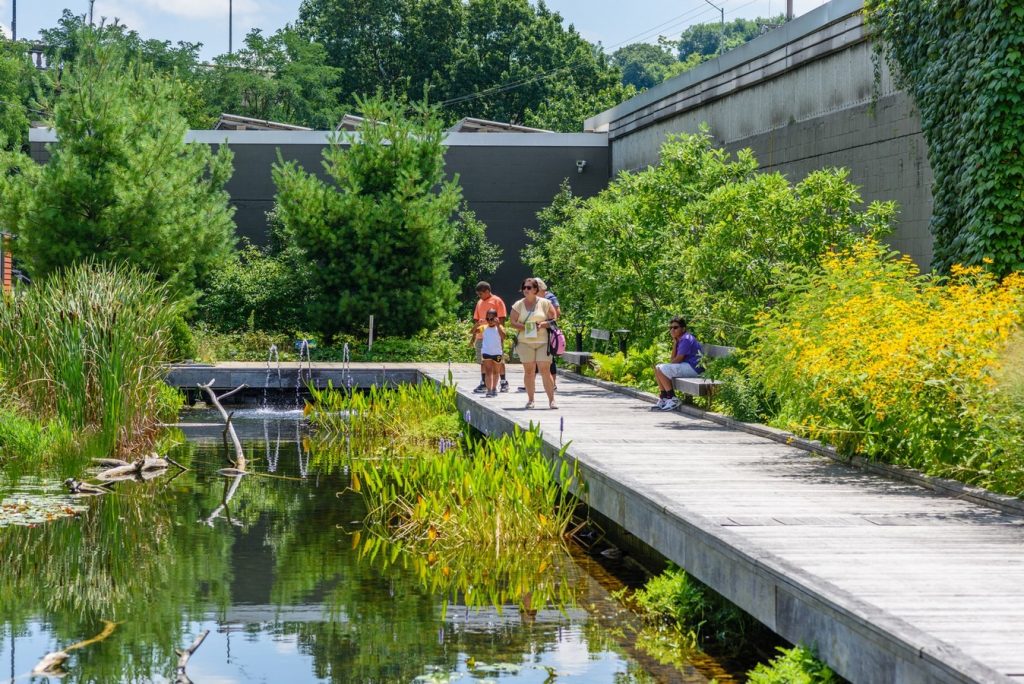Examples of Ecotourism Activities: Immerse Yourself in Nature and Culture
Examples of ecotourism activities abound, offering a unique blend of adventure, education, and environmental stewardship. From nature-based excursions to cultural immersions, ecotourism provides a responsible way to explore the world while supporting local communities and protecting the environment.
Nature-based activities, such as wildlife viewing and hiking, allow visitors to connect with the natural world and gain a deeper understanding of ecosystems. Cultural activities, such as visiting traditional villages and attending festivals, foster cross-cultural exchange and promote appreciation for diverse traditions.
Ecotourism Activities

Ecotourism is a form of responsible tourism that focuses on preserving the environment and benefiting local communities. It encompasses a wide range of activities that allow travelers to experience natural and cultural attractions while minimizing their impact on the environment.
Ecotourism activities can be categorized into different types, including nature-based, cultural, and adventure activities. Each type of activity offers unique benefits for both the environment and the local community.
Nature-Based Activities
Nature-based activities focus on experiencing and appreciating the natural environment. These activities include:
- Wildlife viewing: Observing animals in their natural habitats, such as birdwatching, whale watching, and safaris.
- Hiking and trekking: Exploring natural trails and landscapes, often in protected areas or national parks.
- Camping and backpacking: Spending nights outdoors in tents or shelters, surrounded by nature.
- Kayaking and canoeing: Paddling through rivers, lakes, and coastal areas, offering a unique perspective on the environment.
Nature-based activities promote environmental conservation by raising awareness of the importance of protecting natural habitats and wildlife. They also provide economic benefits to local communities by creating jobs in tourism and supporting conservation efforts.
Cultural Activities
Cultural activities focus on experiencing and learning about the traditions and heritage of local communities. These activities include:
- Visiting historical sites and museums: Exploring places of historical significance and learning about the past and present of the local culture.
- Attending cultural performances: Enjoying traditional music, dance, and theater, which provide insights into the local way of life.
- Participating in local festivals and events: Joining in on celebrations that showcase the unique traditions and customs of the community.
- Learning traditional crafts and skills: Engaging in workshops or classes to learn about local crafts, such as weaving, pottery, or cooking.
Cultural activities promote cultural preservation by supporting local traditions and heritage. They also foster understanding and appreciation of different cultures, breaking down stereotypes and building bridges between people.
Adventure Activities
Adventure activities focus on providing thrilling and challenging experiences in natural environments. These activities include:
- Zip-lining: Gliding through the air on suspended cables, offering panoramic views of the surrounding landscape.
- Rock climbing and rappelling: Scaling rock faces and descending cliffs, testing physical limits and providing a sense of accomplishment.
- White-water rafting and kayaking: Navigating fast-flowing rivers and rapids, offering an adrenaline rush and a chance to experience the power of nature.
- Mountain biking and cycling: Exploring trails and roads on bicycles, providing a healthy and active way to connect with the environment.
Adventure activities promote physical fitness and mental well-being by encouraging outdoor activities and pushing personal boundaries. They also contribute to local economies by creating jobs in tourism and supporting adventure tourism businesses.
Ecotourism activities offer a wide range of benefits for both the environment and local communities. By choosing ecotourism experiences, travelers can contribute to the preservation of natural and cultural heritage, support sustainable development, and create positive impacts on the places they visit.
Nature-Based Activities
Nature-based ecotourism is a form of responsible tourism that focuses on preserving and appreciating the natural environment while providing economic benefits to local communities. It involves activities that take place in natural settings and promote environmental awareness and conservation. Nature-based activities offer unique opportunities for visitors to connect with nature, learn about ecosystems, and support local conservation efforts.
Specific examples of nature-based activities include:
Wildlife Viewing
- Observing animals in their natural habitats without disturbing them.
- Learning about animal behavior, ecology, and conservation.
- Supporting conservation efforts through tourism revenue.
Birdwatching
- Identifying and observing different bird species.
- Learning about bird behavior, migration patterns, and conservation.
- Contributing to scientific research and conservation efforts.
Hiking, Examples of ecotourism activities
- Exploring natural trails and landscapes on foot.
- Enjoying the scenery, fresh air, and exercise.
- Learning about plant and animal life, geology, and conservation.
Cultural Activities: Examples Of Ecotourism Activities
Cultural ecotourism involves immersing oneself in the traditions, customs, and heritage of local communities. It promotes understanding and appreciation of diverse cultures while supporting local economies and preserving cultural heritage.
Examples of cultural activities include visiting traditional villages, attending festivals, and learning about local crafts. These activities provide insights into the history, beliefs, and practices of different cultures.
Respecting Local Customs and Traditions
When engaging in cultural ecotourism, it is essential to respect local customs and traditions. This includes dressing appropriately, avoiding offensive behavior, and asking permission before taking photographs. By observing local etiquette, visitors can ensure they have a positive and respectful experience.
Adventure Activities

Adventure activities play a significant role in ecotourism, offering thrilling experiences for adrenaline-seekers while showcasing the natural environment. These activities provide a unique way to connect with nature, appreciate its beauty, and foster a sense of adventure.
Examples of adventure activities include:
Zip-lining
Zip-lining involves gliding through the forest canopy on a suspended cable. It offers a bird’s-eye view of the surroundings, providing an immersive experience amidst the natural ecosystem.
White-Water Rafting
White-water rafting is an exhilarating activity that takes participants through fast-flowing rivers with varying levels of difficulty. It provides an opportunity to navigate challenging rapids while enjoying the scenic riverbanks and surrounding wilderness.
Rock Climbing
Rock climbing involves ascending natural or artificial rock formations using specialized equipment. It tests physical strength, endurance, and problem-solving skills while offering a unique perspective of the surrounding landscape.
Safety measures are paramount in adventure activities, with trained guides and proper equipment ensuring a controlled and enjoyable experience. Environmental considerations are also taken into account, minimizing the impact on the natural surroundings and preserving the ecosystem for future generations.
Economic and Social Benefits

Ecotourism offers numerous economic and social benefits for local communities, contributing to sustainable development and improving the well-being of residents.
Economic Benefits
Ecotourism creates job opportunities in various sectors, including tourism, hospitality, transportation, and guiding. These jobs provide income for local residents and contribute to the local economy. Additionally, ecotourism stimulates local businesses, such as souvenir shops, restaurants, and transportation providers, generating revenue and supporting economic growth.
Social Benefits
Ecotourism fosters education and awareness about environmental conservation and sustainable practices. By interacting with nature and learning about local ecosystems, visitors gain a greater appreciation for the environment and develop a sense of stewardship. Moreover, ecotourism projects often involve local communities in decision-making and management, promoting community engagement and empowerment.
Examples of Successful Projects
* Osa Peninsula, Costa Rica:Ecotourism initiatives have supported conservation efforts, protected biodiversity, and provided economic opportunities for local communities.
Galapagos Islands, Ecuador
Ecotourism has contributed to the conservation of unique ecosystems and generated income for local residents through tourism and research activities.
Great Barrier Reef, Australia
Ecotourism has raised awareness about the importance of marine conservation and provided sustainable livelihoods for local communities involved in tourism and reef management.
Sustainability and Conservation
/451932107-58b9cdc05f9b58af5ca7cb95.jpg)
Sustainable ecotourism adheres to principles that minimize negative environmental impacts while maximizing conservation efforts. It recognizes the importance of preserving natural ecosystems and cultural heritage for future generations.
Ecotourism plays a crucial role in conservation by providing financial incentives for local communities to protect natural habitats and wildlife. This includes initiatives such as habitat restoration, wildlife management, and the establishment of protected areas.
Examples of Successful Ecotourism Conservation Initiatives
- Costa Rica:Ecotourism has been a driving force behind the country’s conservation efforts, leading to the establishment of national parks and protected areas that safeguard biodiversity.
- Galapagos Islands:Ecotourism regulations have helped preserve the unique ecosystem and wildlife of the islands, while providing economic benefits to local communities.
- Madagascar:Ecotourism has supported conservation projects to protect endangered species, such as lemurs, and promote sustainable practices in local communities.
Challenges and Opportunities
The ecotourism industry faces a range of challenges, including overtourism, pollution, and climate change. Overtourism occurs when a destination receives more visitors than it can sustainably accommodate, leading to environmental degradation and social disruption. Pollution from tourism activities, such as waste generation and air pollution, can also harm ecosystems and local communities.
Climate change is a major threat to ecotourism, as it can alter weather patterns, damage infrastructure, and disrupt wildlife populations.
Despite these challenges, there are also opportunities for addressing them and promoting responsible ecotourism practices. One opportunity is to develop and implement sustainable tourism plans that limit the number of visitors to a destination and minimize their environmental impact. Another opportunity is to educate tourists about the importance of responsible behavior and encourage them to make choices that support local communities and protect the environment.
Finally, there is an opportunity to invest in renewable energy and other sustainable technologies to reduce the environmental footprint of tourism.
Innovative Solutions and Best Practices for Sustainable Ecotourism
There are a number of innovative solutions and best practices that can be implemented to promote sustainable ecotourism. One example is the use of solar panels and other renewable energy sources to power tourist facilities. Another example is the development of community-based tourism initiatives that involve local people in the planning and operation of tourism activities.
Finally, there is the growing trend of using technology to improve the sustainability of tourism, such as by providing tourists with information about responsible travel practices and by tracking the environmental impact of tourism activities.
Closure
Whether you seek adventure or cultural immersion, ecotourism offers a transformative experience that benefits both travelers and the destinations they visit. By embracing sustainable practices and supporting local businesses, ecotourism contributes to the preservation of natural and cultural heritage while fostering economic growth and community well-being.
Popular Questions
What are the benefits of ecotourism?
Ecotourism supports local communities, protects the environment, and provides educational opportunities for travelers.
What are some examples of nature-based ecotourism activities?
Wildlife viewing, birdwatching, and hiking are popular nature-based ecotourism activities.
How can I ensure my ecotourism activities are sustainable?
Choose tour operators that prioritize environmental protection, support local businesses, and minimize their carbon footprint.


